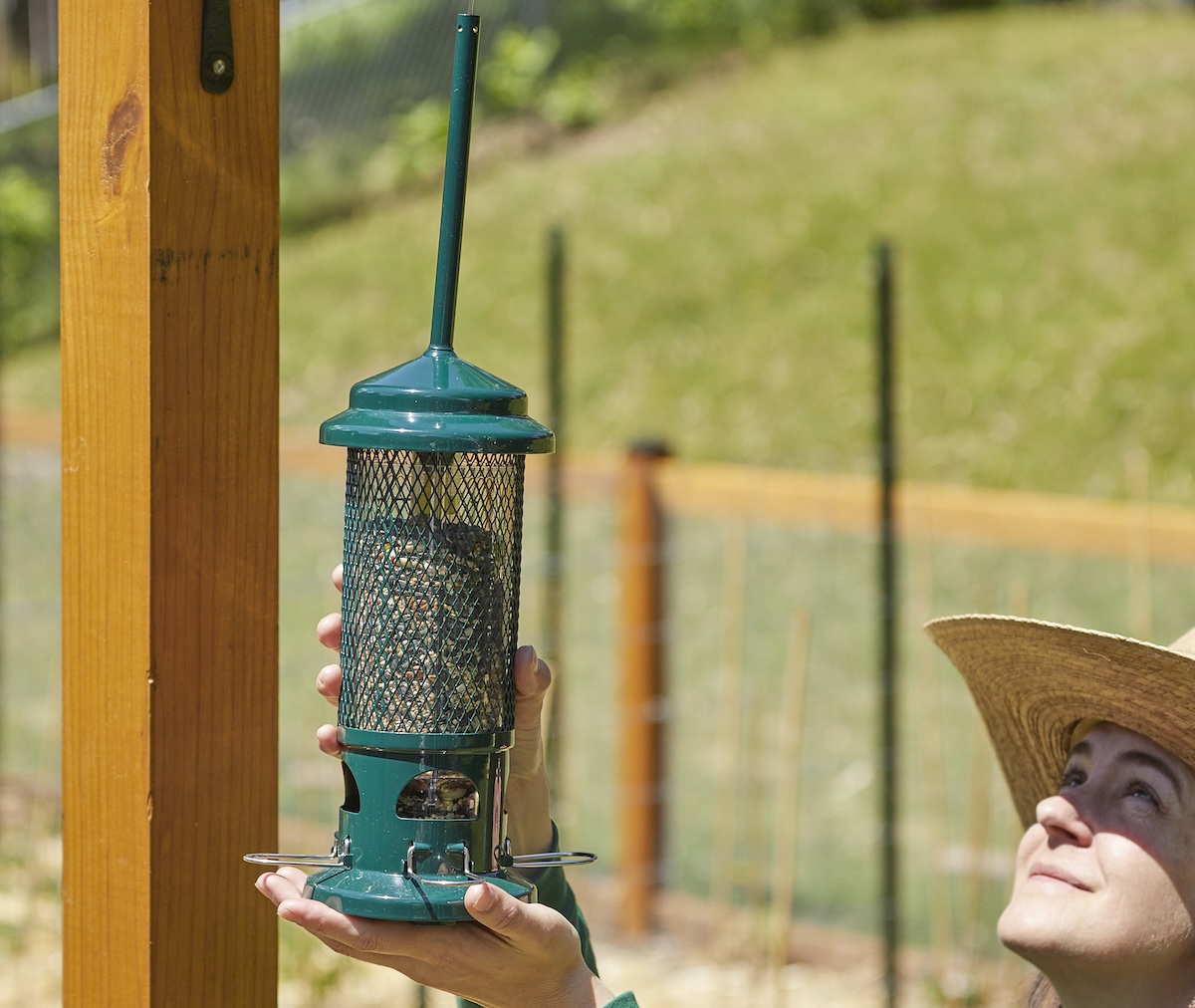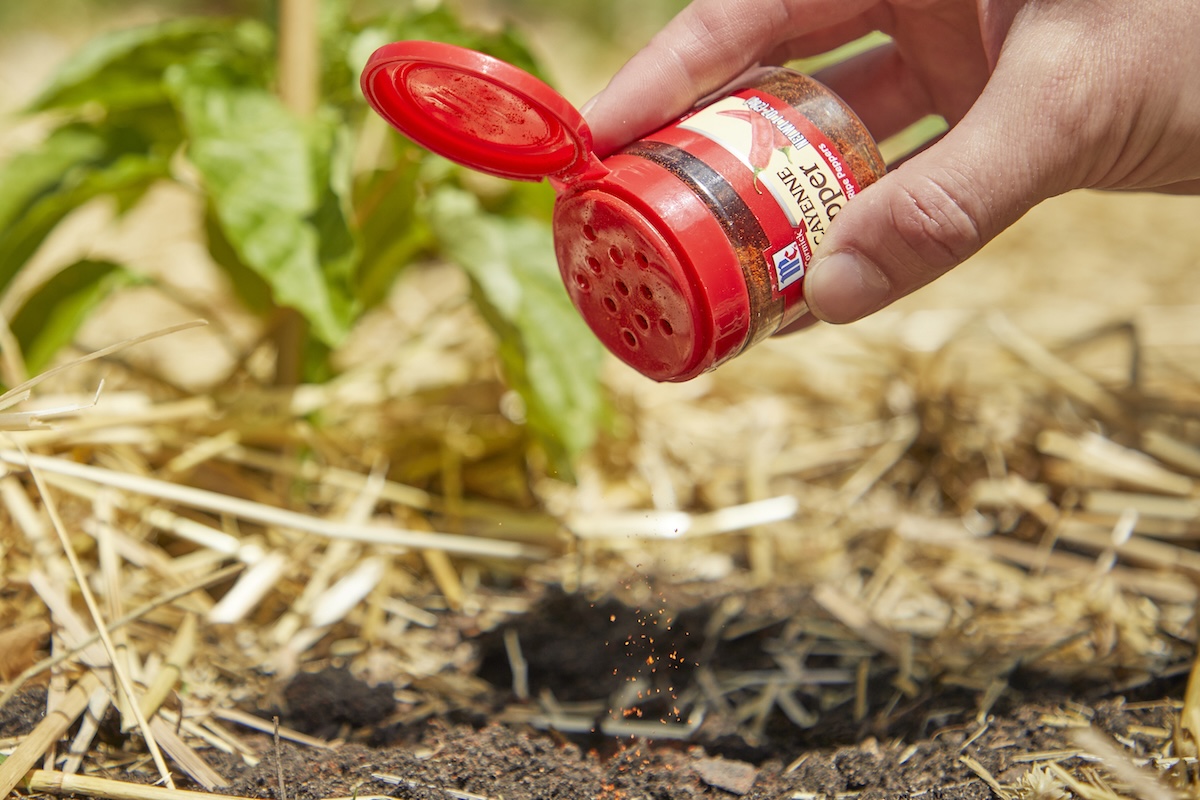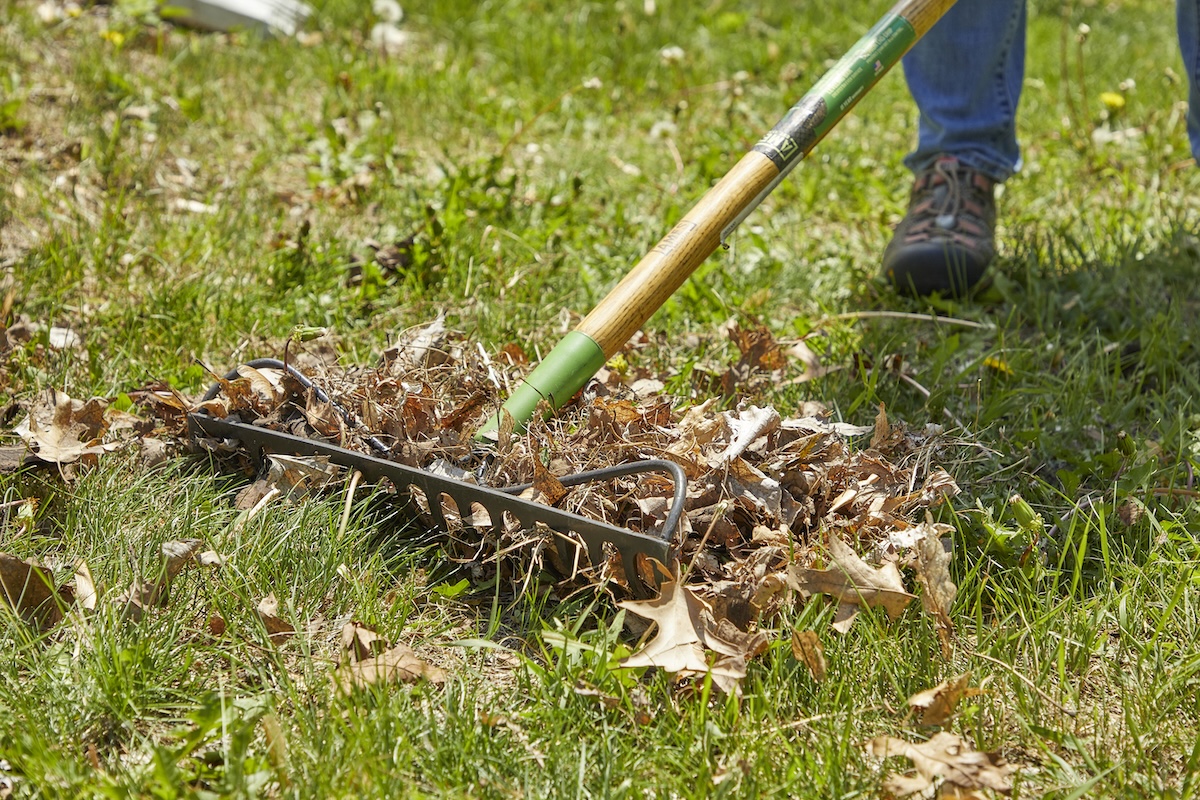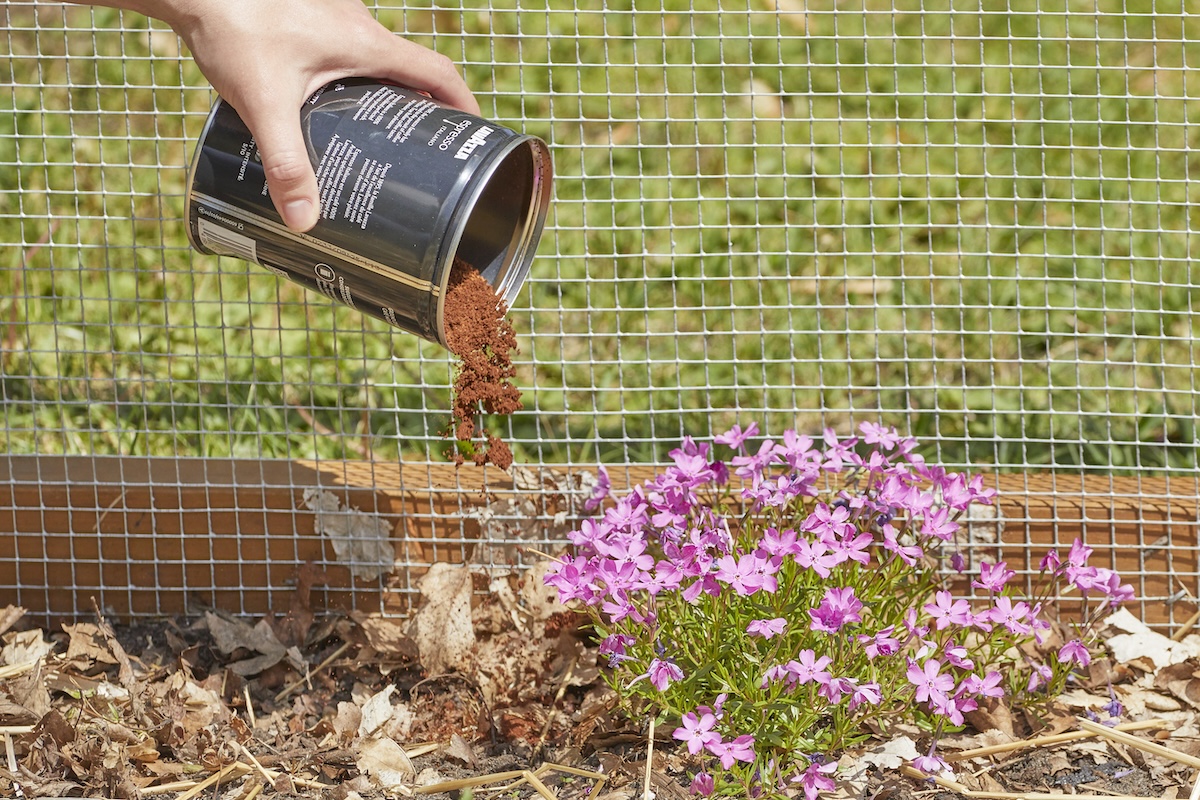

We may earn revenue from the products available on this page and participate in affiliate programs. Learn More ›
There are more than 65 types of squirrels in the United States. They’re cute and playful, but, as fun as it may be to watch their antics, squirrels can sometimes be problematic for gardeners when they nibble on fruits and vegetables, dig, raid the bird feeder, or climb vines.
Before learning how to keep squirrels out of the garden, it helps to ensure they are the culprits of plant damage. First, know the signs that squirrels are in your garden.
- Gnawed foliage and half-eaten vegetables: Chewed leaves, fruits, and other vegetation can indicate the presence of squirrels.
- Holes and burrows in pots and the garden: This could be the result of squirrels caching food and digging for buried nuts.
- Trees with bark chewed off: Especially if done in a circular pattern called girdling, chewed bark is often a sign of squirrels.
- Ravaged bird feeders: It’s common knowledge that squirrels raid bird feeders, so it’s a good bet that if yours is askew, with seed scattered around, a squirrel paid it a visit.
Second, learn how to keep squirrels away from your garden.
1. Fence them out.

Fencing is a simple and inexpensive squirrel deterrent. While squirrels can easily climb wooden privacy fences, they cannot get through heavy wire or plastic mesh. Welded stainless steel mesh, wire hardware cloth, and poly netting are good fencing options. Select a mesh with openings of under ¼ inch. Chicken wire doesn’t make a good squirrel netting because it’s lightweight; determined squirrels can chew through it.
2. Remove the bird feeder.

Getting rid of squirrels humanely is challenging. It’s often easier to discourage them from showing up in the first place. Removing a favored food source is one option. Squirrels aren’t terribly fussy, but some of their favorite foods to nosh include fruit, vegetables, nuts, flowers, fungi, and insects. They’re also known to explore alternatives, such as dog and cat food, and table scraps; squirrels love frequenting bird feeders too.
Removing the bird feeder should cause squirrels to bypass your yard. If you want to continue supplementing the diet of your feathered friends, choose a squirrel-proof bird feeder or add a squirrel baffle to an existing feeder.
3. Grow plants that are unappealing to squirrels.

Like other rodents, squirrels can be scavengers who will eat just about anything available, but there are foods they dislike that might help deter them. Among these are raw onions and raw garlic, as well as many varieties of hot peppers. Squirrels, like many other pests, dislike the smell and taste of peppermint, and the pungent smell of marigolds. Planting a border of any of these unappetizing plants can sometimes be an effective squirrel repellent. Keep in mind that mints grow aggressively and can take over a garden.
4. Pepper your plants with the hot stuff.

Because hot peppers are one of the things squirrels hate the most, dousing your plants with a spray made of crushed hot peppers and just a drop of dish soap in water. Or try sprinkling hot pepper flakes on and around plants to dissuade them from ravaging the plants. Capsaicin (a chemical component of chili peppers) is one of the most effective squirrel repellents because they don’t like the smell or the spicy flavor. Cayenne pepper has the substance and also might deter squirrels or other garden pests. Remember to reapply it after it rains.
5. Keep your yard and garden tidy.

Because squirrels forage for nuts, acorns, and other things to eat, a cluttered yard harbors a food source that attracts them. Raking up dead leaves, twigs, branches, and other dead plant matter can remove food as well as potential nesting sites. Clean up the trash left by rodents, such as corn cobs or broken egg shells, to disinvite the midnight feasters.
6. Blast them out with noise.

Go simple by hanging wind chimes or even tin pie plates tethered to a stake in the garden to create noise that should persuade squirrels to go elsewhere. If you have a sheltered spot, a radio can also annoy them enough to leave, particularly if it’s tuned to a talk radio station. For a little more investment, try an ultrasonic pest-repelling device that emits high-frequency sound waves to scare away squirrels and other animals.
7. Shine a light on the problem.

Blind squirrels (temporarily) with motion-activated lights. Squirrels are sensitive to bright light and will usually leave the area when accosted by flashing lights. A motion-sensor strobe light is a safe, humane way to rid a garden of unwanted squirrels. Many are solar-powered types, so they require no electricity and use no toxic chemicals.
8. Stink them out.

Using odors squirrels don’t like can keep them at bay. In addition to commercial repellents sold at nurseries, garden centers, and online retailers, you can try common household items such as coffee grounds, soap (especially Irish Spring), or vinegar to shoo them away. Do not use ammonia, bleach, naphthalene, or paradichlorobenzene (ingredients in mothballs) because they are harmful to wildlife, pets, and even people.
Another way to get rid of squirrels in the garden is to use predator urine, or even your dog’s fur, around the perimeter.
9. Scare them away.
Stagnant scarecrows or fake owls stuck on a post are unlikely to trick a squirrel into leaving, but motion-activated fake snakes, foxes, birds of prey, and other predators, especially if they also make noise, may convince squirrels to move along. In addition to decoy predators, objects that move, such as pinwheels and wildlife tape, may work.
Other ways gardeners try to scare off squirrels include motion-activated sprinkler systems that will startle but not harm them.
10. Live trap and relocate.
As an absolute last resort in extreme circumstances, set a live trap, baited with squirrel favorites, and relocate the furry little rodents. Be aware that state or local laws might prohibit trapping and/or releasing or relocating them. Check with your local Department of Natural Resources before attempting this method.
Also understand that trapping for relocation is seldom effective and often detrimental to the animal’s life. They may leave babies behind—now orphaned—or they might succumb to predators or other squirrels in territorial battles. They also might struggle to find food and shelter in unfamiliar surroundings.
